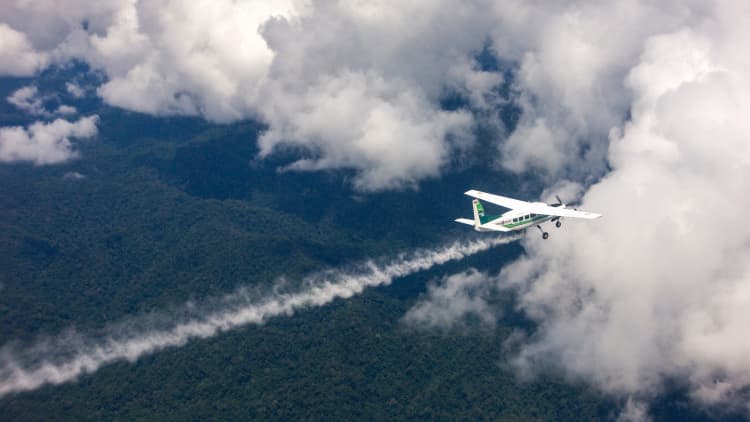[ad_1]
Part of Tongass National Forest
Urbanglimpses | Istock | Getty Images
The Biden administration on Wednesday announced it’s reinstating restrictions on logging and road-building on about nine million acres of Alaska’s Tongass National Forest, the world’s largest intact temperate rainforest.
The rule, which was finalized by the U.S. Department of Agriculture, repeals a Trump administration decision that stripped safeguards for the forest in southeastern Alaska. The agency’s plan prohibits road construction, reconstruction and timber harvest in the rainforest’s roadless areas.
The Tongass is a pristine area of 16.7 million acres that serves as a major carbon sink and provides habitat for wildlife such as salmon and trout, brown bears and bald eagles. The rainforest is also considered critical for carbon sequestration and storage to help mitigate climate change. The country’s forests absorb carbon dioxide equivalent to more than 10% of U.S. annual greenhouse gas emissions, according to the USDA.
“As our nation’s largest national forest and the largest intact temperate rainforest in the world, the Tongass National Forest is key to conserving biodiversity and addressing the climate crisis,” Agriculture Secretary Tom Vilsack said in a statement.
“Restoring roadless protections listens to the voices of Tribal Nations and the people of Southeast Alaska while recognizing the importance of fishing and tourism to the region’s economy,” Vilsack added.
The dispute over protections of the Tongass has lasted for more than a couple decades. Alaska officials have argued that restrictions on the rainforest’s roadless areas have limited economic opportunities for the state.
Alaska’s Republican governor Mike Dunleavy, in a statement on social media, called the Biden administration’s ruling a “huge loss” for residents.
“Alaskans deserve access to the resources that the Tongass provides — jobs, renewable energy resources and tourism, not a government plan that treats human beings within a working forest like an invasive species,” Dunleavy wrote.
Environmental groups praised the rule as a win for the forest, its wildlife and the local communities that depend on its intact ecosystems.
“This decision puts public lands and people first, and we are grateful for the action,” Andy Moderow, state director of the Alaska Wilderness League, said in a statement.

[ad_2]
Source link
